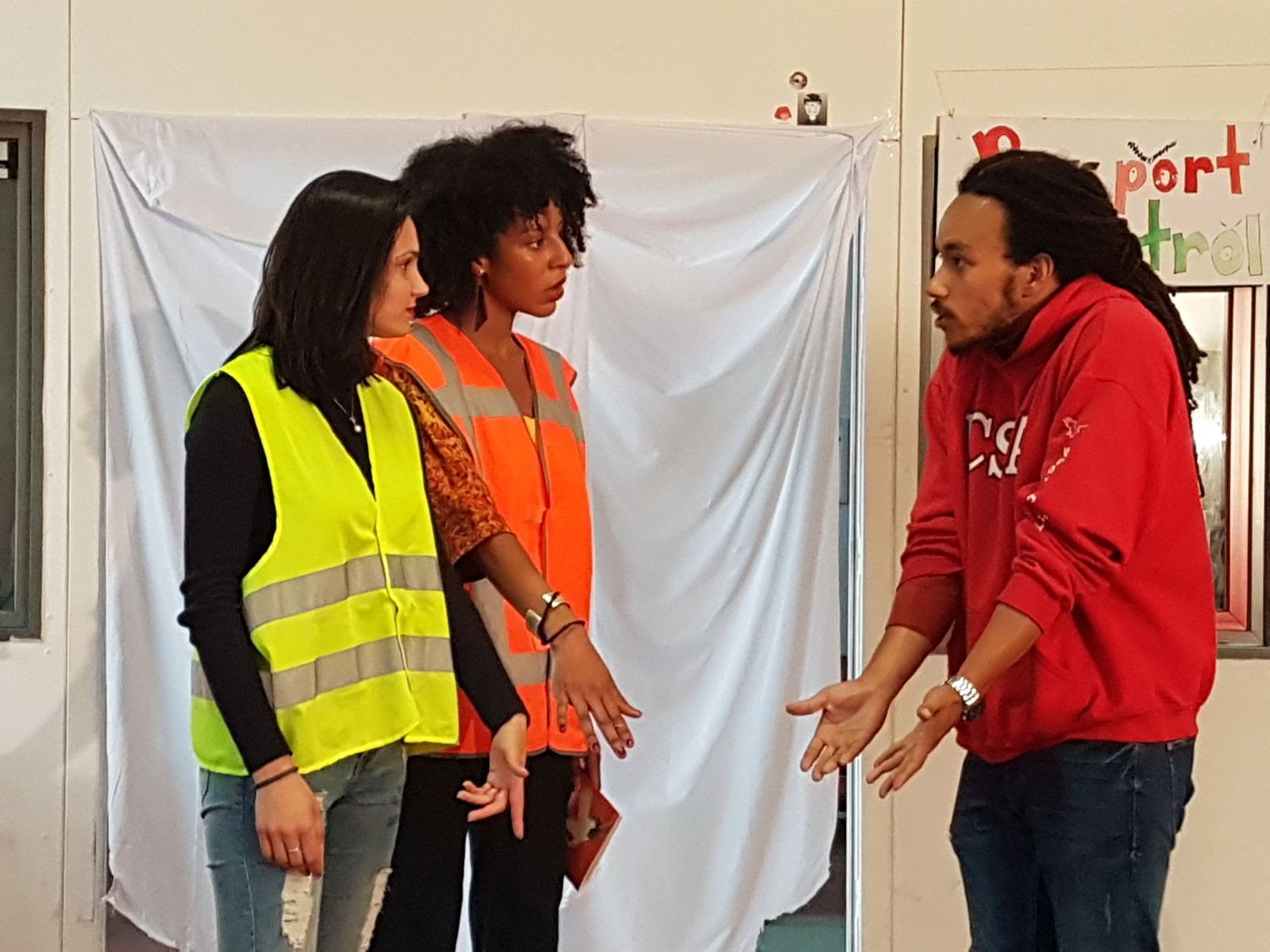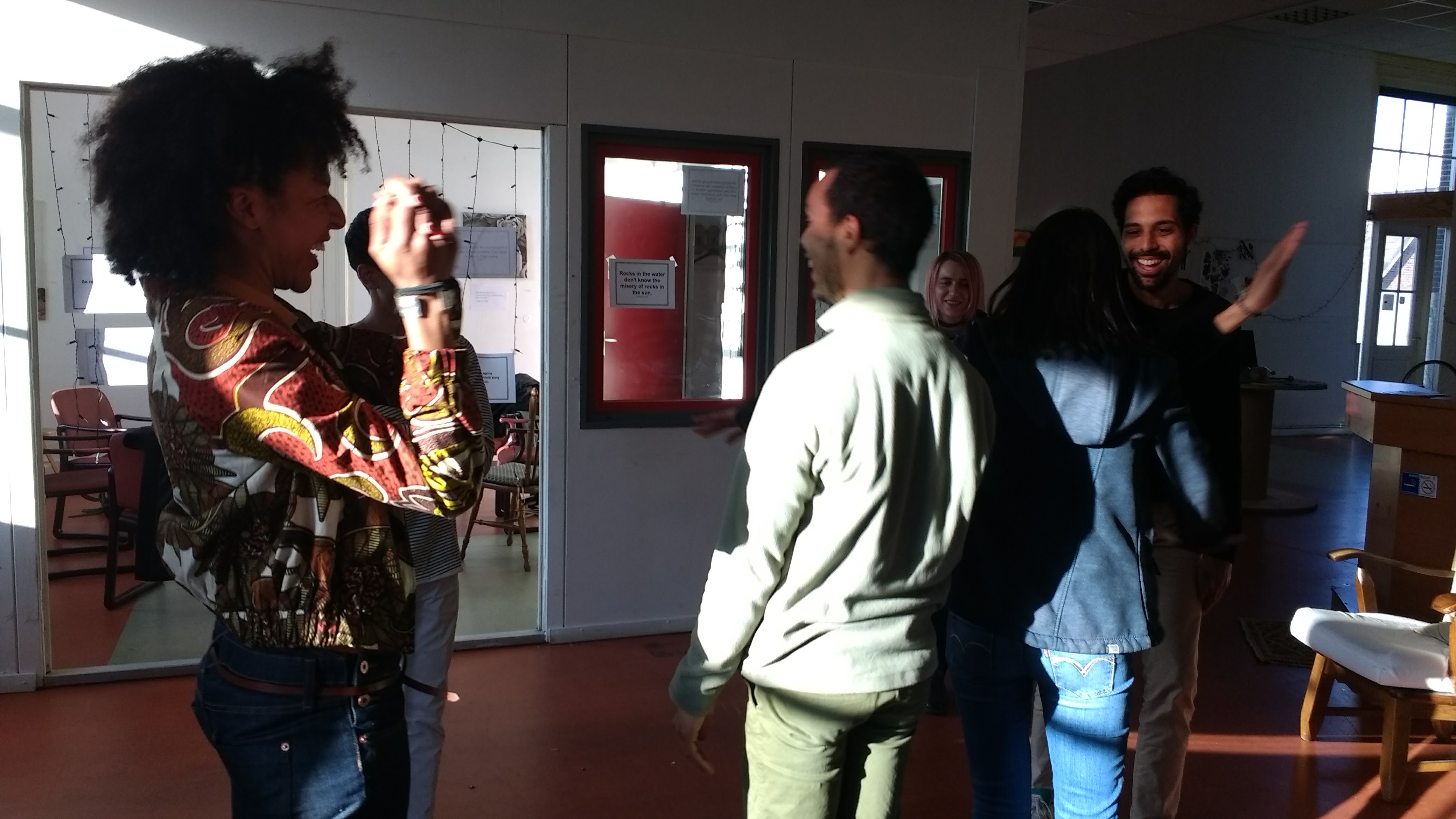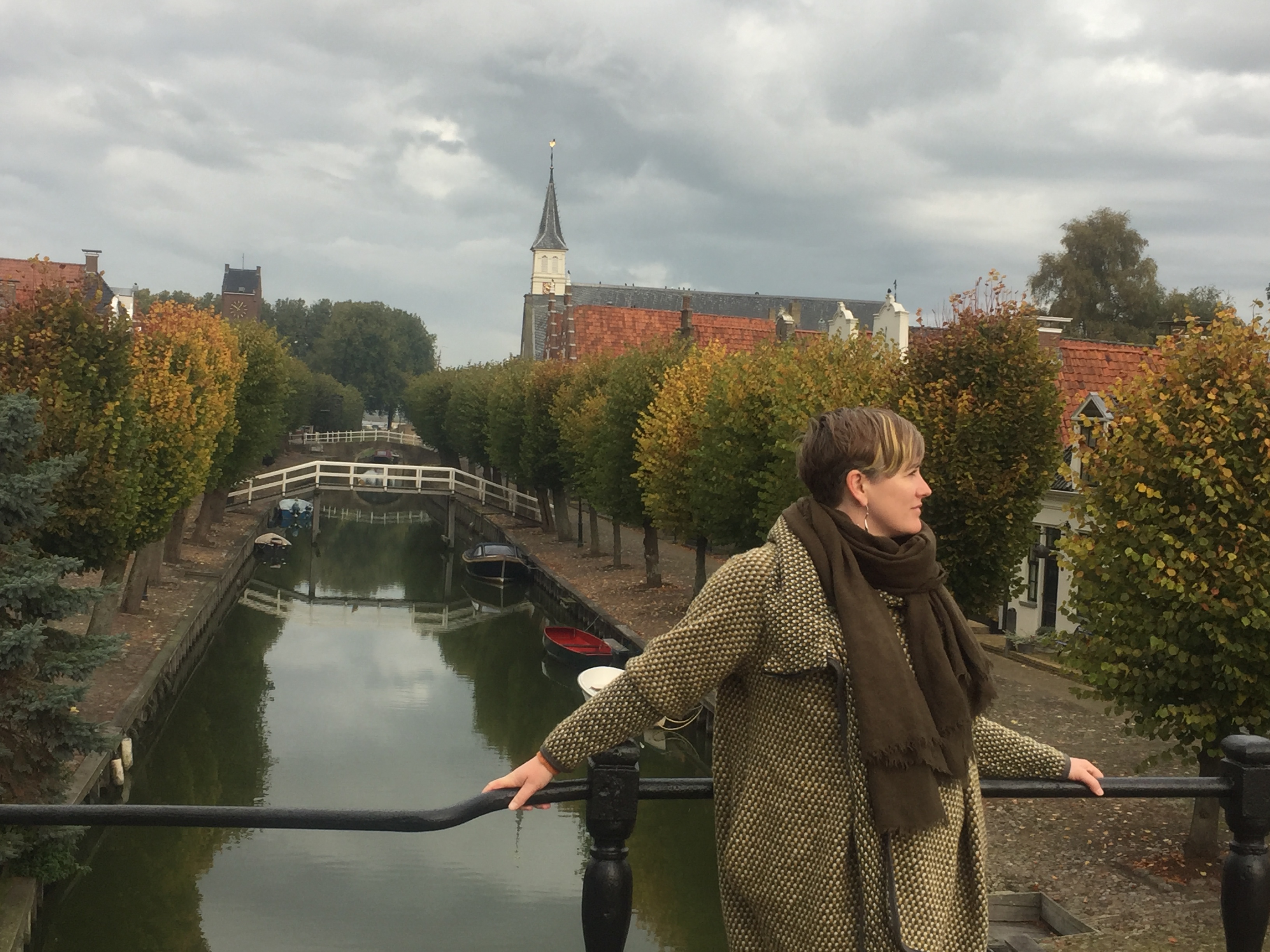As part of her research, Sociology PhD student Valerie Stam created a 14-week participatory theatre project in the Netherlands entitled Theatre School on Resistance.

Photo credit: xovelo.com
Developed and delivered in partnership with a local, youth-based creative arts organization in Rotterdam, the Theatre School drew on participatory adult education and theatre techniques to offer interactive workshops in which the participants discussed and performed issues of belonging, discrimination, citizenship and resistance, using theatre to explore their ideas.
The 10 participants then performed a public theatre production on issues of discrimination. The play was a series of stories of oppression and resistance, loosely based on the experiences of the participants. Over 45 people attended the event, and Stam plans on creating a short film of the performance.
Drawing on Forum Theatre, a technique developed by Brazilian theatre-educator Augusto Boal, the audience became a part of the play. With the goal of “rehearsing resistance”, the audience was invited to make suggestions to the actors, or come up on stage themselves, in an effort to influence the scene being portrayed. This led to a lively discussion about how oppression works, and what kinds of strategies could be used at different times to change the dynamics of power.

Three members of the Theatre School on Resistance
Says Stam: “Theatre proved to be a dynamic way of facilitating conversations. I was really impressed with how engaged the audience was. Conversations continued in the seats long after we wrapped up.”
Stam hopes to continue using theatre in her work on social justice issues.
She also interviewed 15 youths and three social service workers who work with second-generation Black and Muslim youths in the Netherlands. She is researching how these youths feel about citizenship and belonging in the Netherlands – basically how they feel about being Dutch – and also how they push back against racism and Islamophobia.
“These young people were born in the Netherlands and have Dutch citizenship,” shares Stam. “However, because of their race or religion, they are made to feel like they don’t fully belong in Dutch society.”
Stam’s research stems from questions around citizenship as a whole e.g., if people who have legal citizenship are treated like second-class citizens, what does this mean for the promises of universal equality that citizenship offers?
Stam says: “I expect this research will visually and verbally describe the ways in which second-generation Black and Muslim young people are reimagining citizenship, practising resistance and enacting belonging. It also has larger implications for diaspora communities facing Islamophobia and anti-Black racism in Western nations.”
She says that learning how young people are dealing with these issues in the Netherlands may provide inspiration for communities elsewhere. In addition, Stam plans to make recommendations for municipalities and other levels of government working on issues of integration.
Stam explains that the reason she chose to do her research in the Netherlands is because she is a third-generation Dutch-Canadian and wanted to explore some of her own heritage. As a guest scholar at the University of Amsterdam, she studied the Dutch language and connected with other scholars working on similar topics.
“This research is timely because of an increase in Islamophobia, demonstrated in part by several political parties who appealed to anti-immigrant sentiment in the 2017 Dutch national elections,” says the PhD student. “This rise in Islamophobia takes place in the context of a surge in migration from Muslim countries to Western nations. Additionally, Black migrants are arriving in countries where anti-Black racism and the legacies of colonialism continue to be societal issues.”

Stam’s research and experience helped her win the 2017-18 Graduate Fellowship in Migration and Diaspora Studies. This $20,000 award supports research on the social, economic, political and cultural implications of the movement and transnational settlement of people, and is intended to galvanize faculty, students and practitioner communities in the interdisciplinary fields of Migration and Diaspora Studies.
Stam says that the MDS TD Fellowship will not only help to support her when writing her dissertation but will also aid in the production of a professional video of the public performance, as well as the professional layout and design of the theatre education manual.
Stam plans on using these resources in presentations for academic and public events. As well, the Rotterdam creative arts organization will use these tools as they plan to offer the Theatre School on Resistance on an ongoing basis.
She hopes that making the film and manual accessible to the public may result in others using theatre to explore issues of oppression and migration. Stam also plans to return to the Netherlands to share her research results with municipalities and universities there.
She is grateful for the support she has received from her supervisor, Dr. Jacqueline Kennelly, and the Department of Sociology and Anthropology, to use creative, participatory research methods and to conduct research abroad for a year.
For more information, click here TD Graduate Fellowship in Migration and Diaspora Studies.

Thursday, November 23, 2017 in Awards, News, Research
Share: Twitter, Facebook



